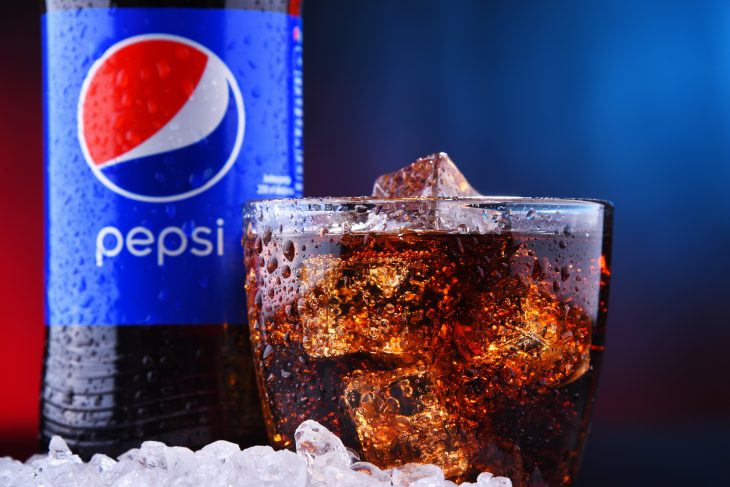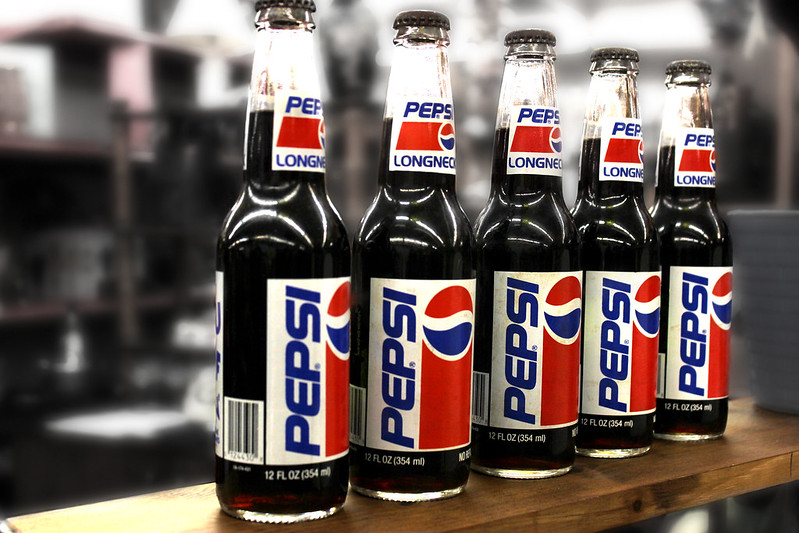
Pepsi is a popular carbonated soft drink enjoyed by millions of people worldwide. With its unique flavor and refreshing taste, it’s no wonder that Pepsi has become a staple in many homes and gatherings. In this article, we will delve into 15 Pepsi nutrition facts that you may find interesting and informative.
Pepsi’s Main Ingredients
Pepsi’s primary ingredients are carbonated water, high fructose corn syrup, caramel color, sugar, phosphoric acid, caffeine, citric acid, and natural flavors. The combination of these ingredients gives Pepsi its distinctive taste and effervescence.
Calories in Pepsi
A 12-ounce (355 ml) can of Pepsi contains 150 calories. These calories come primarily from the sugar content in the beverage. It is important to remember that these are empty calories, meaning they provide no nutritional value and can contribute to weight gain if consumed in excess.
Sugar Content
One of the most significant components of Pepsi’s nutrition profile is its sugar content. A 12-ounce can of Pepsi contains 39 grams of sugar, which is approximately 10 teaspoons. This amount of sugar exceeds the American Heart Association’s recommended daily sugar intake of 24 grams for women and 36 grams for men.
Sodium Content
Pepsi also contains a small amount of sodium. A 12-ounce can has 30 milligrams of sodium, which is about 1.3% of the recommended daily value. While this may not seem like much, consuming multiple servings of Pepsi throughout the day can quickly add up and contribute to overall sodium intake.
Caffeine Content
Caffeine is a well-known stimulant found in many soft drinks, including Pepsi. A 12-ounce can of Pepsi contains 39 milligrams of caffeine. Although this is less than the amount found in a typical cup of coffee, it can still contribute to your daily caffeine intake, especially if you consume other caffeinated beverages or products.
Phosphoric Acid
Phosphoric acid is an ingredient found in Pepsi which gives the beverage its tangy taste. However, excessive consumption of phosphoric acid has been linked to lower bone density and an increased risk of osteoporosis. Moderating your intake of phosphoric acid-containing beverages, such as Pepsi, can help maintain good bone health.
Pepsi’s Impact on Teeth
The combination of sugar and acid in Pepsi can have negative effects on dental health. Consuming sugary, acidic beverages can lead to tooth enamel erosion, cavities, and other dental problems. To minimize these risks, it’s essential to practice good oral hygiene and limit your intake of sugary drinks.
Artificial Sweeteners in Diet Pepsi
Diet Pepsi is a popular alternative for those looking to reduce their calorie and sugar intake. It contains artificial sweeteners, such as sucralose and acesulfame potassium, which provide a sweet taste without the added calories or sugar. However, some studies have suggested that artificial sweeteners may have negative effects on metabolism and gut health, so it’s essential to consume them in moderation.

Pepsi Zero Sugar
Pepsi Zero Sugar, formerly known as Pepsi Max, is another sugar-free alternative to regular Pepsi. This beverage contains zero calories and zero sugar, relying on artificial sweeteners like aspartame and acesulfame potassium to provide its sweet taste. As with Diet Pepsi, it is essential to consume these sugar substitutes in moderation due to potential health concerns.
Hydration and Soft Drinks
While Pepsi can be a refreshing drink, it is not an ideal choice for hydration. The sugar and caffeine content in Pepsi can act as diuretics, potentially leading to increased urination and a subsequent loss of fluids. Water, herbal tea, and other low-sugar beverages are better options for maintaining proper hydration.
Pepsi’s Impact on Weight Management
Regular consumption of high-sugar beverages like Pepsi can contribute to weight gain and increase the risk of obesity. It is essential to be mindful of your daily caloric intake and limit your consumption of empty calories to maintain a healthy weight.
Pepsi and Metabolic Syndrome
Excessive intake of sugary drinks, including Pepsi, has been linked to a higher risk of developing metabolic syndrome. This condition is characterized by a group of risk factors, such as high blood pressure, elevated blood sugar, excess body fat, and abnormal cholesterol levels, that increase the risk of heart disease and stroke.
Pepsi and Type 2 Diabetes
A diet high in sugar-sweetened beverages like Pepsi can increase the risk of developing type 2 diabetes. To help prevent the onset of this chronic condition, it’s crucial to limit your intake of sugar-laden drinks and focus on a balanced diet that includes whole, unprocessed foods.
Healthy Alternatives to Pepsi
If you’re looking to reduce your consumption of sugary beverages like Pepsi, there are several healthier alternatives to consider. These options include water, herbal tea, sparkling water, and homemade fruit-infused beverages that can provide refreshment without the added sugar and empty calories from Pepsi.
Serving Size Awareness
It’s crucial to be mindful of serving sizes when consuming Pepsi and other soft drinks. A standard serving size for Pepsi is 12 ounces (355 ml). However, many bottles and containers available on the market exceed this size, making it easy to consume more calories and sugar than intended. To maintain a balanced diet, try to stick to the recommended serving size and limit your intake of sugary beverages.

More About Pepsi
Pepsi’s Origins
Pepsi was invented in 1893 by American pharmacist Caleb Bradham, who initially named the beverage “Brad’s Drink.” In 1898, the name was changed to Pepsi-Cola, derived from the word “dyspepsia,” which refers to digestion problems. Bradham believed his new concoction could aid digestion, thanks to the inclusion of pepsin and kola nuts.
Pepsi’s Limited Edition Flavors
Over the years, Pepsi has introduced various limited-edition flavors to cater to different tastes and preferences. Some of these unique flavors include Pepsi Blue, Pepsi Vanilla, and Pepsi Holiday Spice. While these flavors offer a fun twist on the classic Pepsi taste, they still contain sugar and should be consumed in moderation.
Environmental Impact of Pepsi
The production, packaging, and distribution of Pepsi and other soft drinks can have negative effects on the environment. Plastic bottles and aluminum cans contribute to pollution and waste, while the transportation of these products generates carbon emissions. Opting for more eco-friendly beverage options and recycling containers can help reduce your environmental impact.
Conclusion
Understanding the nutritional content and potential health impacts of Pepsi can help you make informed decisions about your beverage choices. While enjoying Pepsi in moderation is unlikely to cause significant harm, it’s important to be aware of the sugar, calorie, and caffeine content and consider healthier alternatives for hydration and overall well-being.
Was this page helpful?
Our commitment to delivering trustworthy and engaging content is at the heart of what we do. Each fact on our site is contributed by real users like you, bringing a wealth of diverse insights and information. To ensure the highest standards of accuracy and reliability, our dedicated editors meticulously review each submission. This process guarantees that the facts we share are not only fascinating but also credible. Trust in our commitment to quality and authenticity as you explore and learn with us.


